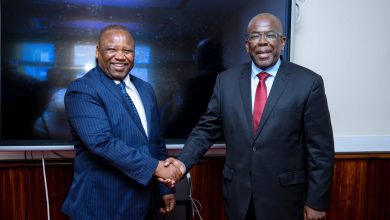TIC urges traders to embrace partnerships for investment growth

DAR ES SALAAM: TANZANIAN traders have been challenged to form strategic partnerships and invest in key sectors such as manufacturing and food processing to strengthen domestic investment and diversify the national economy.
This call was made by the Executive Director of the Tanzania Investment Centre (TIC), Mr Gilead Teri, who said that increasing local investment in manufacturing is crucial for boosting exports, reducing imports and generating more employment opportunities for Tanzanians.
Speaking over the weekend during a special consultative meeting with Kariakoo traders in Dar es Salaam, Mr Teri stressed the importance of collaboration among businesspeople to pool capital for large-scale investments, particularly in the production of essential goods, rather than continuing to rely on imported finished products.
“Joint ventures are not a sign of weakness, but of strength. They allow two or more potential investors to pool resources and implement capital-intensive projects,” Mr Teri said.
“Even some of the largest businesses and banks in the country began as partnerships among individuals with a shared vision.” Mr Teri highlighted manufacturing, food processing and home appliances as some of the most promising investment areas in Tanzania.
He encouraged domestic investors to seize these opportunities, pointing out that Tanzania’s strategic geographical position provides access to both local and international markets in Eastern, Southern and Central Africa.
The session, attended by around 100 business leaders under the Kariakoo Traders Association, aimed to raise awareness about TIC’s registration procedures and investment incentives available to domestic investors.
Mr Teri noted that for years, foreign investors have outnumbered local investors in Tanzania due to their readiness to form partnerships and their greater familiarity with investment procedures.
“We continue to see more Chinese and Indian investors coming in, partly because they understand the system better,” he said.
ALSO READ: Energy summit to foster investment growth
“In 2024, out of about 900 registered projects, over 50 per cent were foreign-led, while domestic investors accounted for only 40 per cent.”
“We want to encourage more Tanzanians to invest, especially through partnerships, which make it easier to raise the required capital,” he added, calling for a mindset shift among local investors to become more proactive and open to collaboration, including with foreign partners.
Mr Teri reaffirmed TIC’s commitment to facilitating and supporting such partnerships and urged local entrepreneurs to seek guidance from the centre to better understand investment procedures and the available economic opportunities.
He said the government under President Samia Suluhu Hassan, enacted the new Investment Act of 2022 specifically to stimulate domestic investment.
One of the key reforms under the new law was the reduction of the minimum capital threshold for domestic investors—from 100,000 US dollars (about 269m/-) to 50,000 US dollars (about 134m/-).
“It’s now ten times easier for local investors to start investing in Tanzania,” he said.
He further noted that a range of incentives are available, including import duty exemptions of up to 75 per cent for investors in logistics, real estate and hospitality sectors.
Chairperson of the Kariakoo Traders Association, Mr Severini Mushi thanked TIC for organising the informative workshop and called for more regular capacity-building sessions to help local traders transition into full-fledged investors.
He expressed confidence that through partnerships, traders could establish local factories and significantly reduce reliance on imported goods.
“Right now, we spend a lot importing finished products. If we combine our resources, we can establish industries, such as a textile factory and produce locally,” Mr Mushi said.





